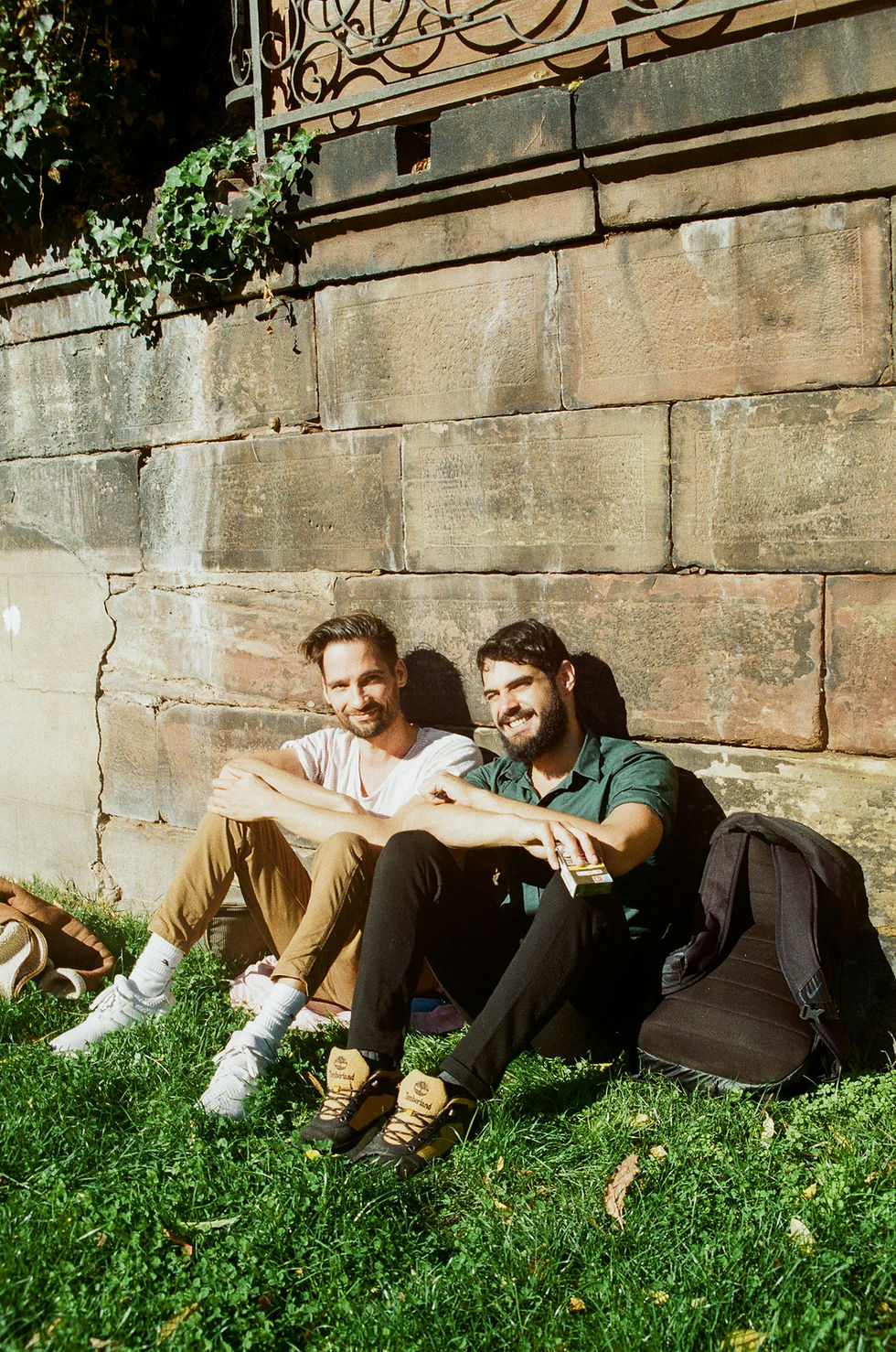How Gay Men Can Stop Shrinking to Fit In
- Chris Tompkins

- Apr 21, 2025
- 3 min read
Updated: Sep 10, 2025
Internalized messages can lead to hiding parts of ourselves.
Here’s how to heal.

KEY POINTS
Gay men often internalize the message that being authentic makes them “too much” or unlovable.
Over time, this internalized belief can lead to self-rejection, anxiety, and emotional disconnection.
Reclaiming authenticity starts with awareness and embracing the parts of ourselves we’ve hidden to feel safe.
From an early age, many gay men are subtly conditioned to suppress parts of themselves. These messages aren't always overt. Instead, they can show up as subtle social cues, unspoken expectations, and occasional teasing. It could be as simple as hearing “Do you have a girlfriend?” when you knew you didn’t like girls or feeling the discomfort when another boy was bullied for being “too sensitive.”
These moments may not seem significant on their own, but over time, they can start to shape how gay men view themselves—and the world’s acceptance of them.
The Internalized Message: “You’re Too Much”
The core message that gay men can internalize is that being themselves—being “too much”—makes them unlovable. This idea comes from society's narrow standards of masculinity and the expectation to “fit in.” For gay men, this pressure is often quiet—not overt bullying or harassment but rather implicit rules of behavior: “Don’t stand out,” “Don’t be too expressive,” or “Just fit in.”
This conditioning often leads to self-rejection. Over time, it’s not uncommon for gay men to shrink parts of themselves in order to feel safe and like they belong. But this coping mechanism comes at a cost. It disconnects them from their true selves and fosters feelings of anxiety, shame, and loneliness. Even when surrounded by people, the fear of being too vulnerable or too visible can remain deeply ingrained.
The Cost of Shrinking: Anxiety, Disconnection, and Shame
Suppressing authentic parts of oneself is damaging. Research shows that when gay men can be authentic, their psychological well-being improves. They report feeling more connected, having better relationships, and experiencing less anxiety. However, when they shrink to meet others' expectations, the opposite occurs—anxiety, loneliness, and shame can take root.
One of the most significant struggles I often see in gay men is that they might not even realize they’re doing this. It becomes so deeply ingrained in their behavior that they struggle to recognize when they're performing instead of being themselves. You may find yourself constantly seeking approval or trying to “fit in” but never feeling truly accepted. This cycle reinforces feelings of inadequacy and self-doubt.
Healing begins with noticing. These messages often operate beneath the surface, quietly shaping how you relate to others—and to yourself. Naming them doesn’t mean blaming yourself. It means reclaiming your ability to choose. And with that choice comes the opportunity to reconnect—with your voice, your body, your needs, and what brings you joy.
Reclaiming your authenticity isn’t about changing who you are; it’s about reconnecting with the parts of yourself that were buried for the sake of fitting in. The boy you buried to belong is the heart of the man you’re becoming.
A Simple Practice to Start Healing
Healing doesn't require drastic changes right away. It can start with a simple practice: Notice the parts of yourself that you still shrink or hide. Is it a playful part, a sensitive part, a part that craves intimacy? Let these parts have space—even for just a few moments. Allow them to be seen, even if it's just by you.
With practice, these parts of yourself will begin to emerge, and with them, the authentic man who’s always been inside.
The good news is that the messages we internalize can be externalized—and unlearned. Healing is about naming the beliefs that keep you small. You deserve to take up space—fully and unapologetically. By externalizing these messages, you strip them of their power, allowing you to reconnect with the parts of yourself you’ve hidden away.
As we unpack the messages we internalize, it’s important to remember that much of the burden we carry isn't ours to hold. Shame, guilt, and fear often come from external sources—society, family, anti-LGBTQ religions, or culture—that don't belong to us. Part of our growth is shifting the onus back to where it belongs and recognizing that these feelings aren’t ours to carry. By reclaiming our truth, we allow ourselves to heal and step into a more authentic life, free from the weight of other people's expectations.
The journey isn’t about becoming someone new; it’s about reclaiming who you’ve always been and living with greater authenticity. You are worthy of all the space you occupy.
Featured on:
Chris Tompkins is a gay male therapist in West Hollywood (Los Angeles) who specializes in working with adult gay men, individuals and couples. He supports clients navigating identity, relationships, religious trauma, addiction, and self-esteem. To learn more, explore therapeutic services or schedule a free consultation.




Comments